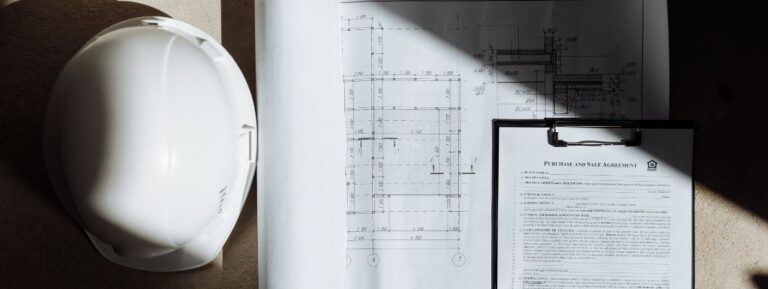What is construction law?
Construction law can be broadly defined as a branch of law that involves the regulation of all types of construction and building works. The body of law that deals with construction is diverse and there are a number of laws and regulations that are State or Territory specific that regulate the construction industry.
What do construction lawyers do?
Construction lawyers specialise in construction law. They are often called upon to draft, negotiate and review construction contracts, assist with the tender process, advise parties to a construction contract on various aspects either before, during, or after a project and assist with construction disputes and debt recovery.
What are the relevant statutes that regulate the construction industry?
There are a number of laws and regulations that apply to the construction industry and these can either be federal, state, and local laws.
The National Construction Code (NCC) was formally known as the Building Code of Australia. The NCC sets out the minimum requirements for safety, health, amenity, and accessibility in the design and construction of all new buildings, building work, plumbing and drainage systems, and all new building work must comply with the dictates of the NCC. All States and Territories have adopted the NCC.
Each State has its own respective legislation and regulations that regulate the construction industry. Typically, State legislation and regulations deal with issues such as contracting, licensing, registration, insurance of building works, and warranties.
The table below sets out some of the legislation in force in each State and Territory.
STATE/TERRITORY | LEGISLATION |
New South Wales |
|
Victoria |
|
Queensland |
|
Australian Capital Territory |
|
Western Australia |
|
South Australia |
|
Northern Territory |
|
Tasmania |
|
The statues listed above are not an exhaustive list of the laws that may be applicable to construction matters. Other laws may very well be applicable depending on the circumstances such as employment laws and regulations, local government planning and environment laws, and even common law principles.
Do I need to be licensed to carry out building work?
Each State has its own definition of what building work is and when a license (to carry out building work) is required. The table below sets out when a license (to carry out building work) is required for the States of New South Wales, Queensland and Victoria.
STATE/TERRITORY | LICENSE REQUIREMENTS |
New South Wales | You must hold an NSW building license to conduct residential building work in NSW valued at more than $5,00.00 in labour and materials. A general builder may do any work that is residential work. Work that you need to have a license for includes:
|
| Queensland | You must hold a QBCC license to carry out building work, where:
|
How can I apply for a license?
Each State has its own licensing procedures and requirements. The table below sets out the governing body for the States of New South Wales, Queensland, and Victoria. You will need to contact the relevant governing body of your State to find out the specific licensing requirements.
STATE/TERRITORY | GOVERNING BODY |
| New South Wales | Fair Trading NSW via Service NSW |
| Victoria | Victorian Building Association |
| Queensland | Queensland Building and Construction Commission (QBCC) |
Are there different categories of licenses?
Yes, in Queensland licensing for building work is divided into licence types and, subsequently, licence classes. The critical element understanding is to be aware of the work you are performing, as this will dictate whether a licence is required.
The types are summarised as follows:
Type | Supervise building work | Be a nominee for a building company | Enter into building contracts for building work |
Contractor | Yes | Yes | Yes |
Nominee Supervisor | Yes | Yes | |
Site Supervisor | Yes | ||
| Fire Occupational | Yes |
|
In relation to the licence classes, they are varied depending on the scope of work performed for a particular project. For example, irrigation or steel fixing. There are also varying levels of general building licences according to the type of building. These are divided into low rise, medium rise and open.
In New South Wales, there are three categories of licence:
• Contractor licence – allows you to contract and advertise to do work.
• Qualified Supervisor Certificate – allows you to supervise and do the work described on your certificate.
• Endorsed contractor licence – is issued to individuals who apply for a contractor licence and who also have the qualifications and experience needed to be a qualified supervisor.
What happens if I carry out building works without a license?
In Queensland, the QBBC Act makes it an offence to undertake to carry out building work without a license of the appropriate class. The maximum penalty:
- for a first offence is 250 penalty units;
- for a second offence is 300 penalty units; and
- for a third or later offence is 350 penalty points or 1 year’s imprisonment (this offence constitutes a crime pursuant to the QBCC Act).
- In addition, you will only be entitled to reasonable remuneration for carrying out the construction work which generally means you can only claim for the cost of supplying material and labour only and not any profit.
In New South Wales, a person who performs building works without a licence may receive a penalty:
- for a first offence – maximum 1,000 penalty units; and
- for a second or subsequent offence – maximum 500 penalty units or imprisonment for a term not exceeding 12 months, or both.
Do I need to have a written construction contract?
In Queensland, all:
- domestic building work costing more than $3,300.00 must be covered by a written contract. Whilst you need not have a construction contract for works that are valued at less than $3,300.00 it is a good idea to have a contract in place or at the very least a detailed written quotation; and
- commercial building work costing more than $10,000.00 must be covered by a written contract.
In New South Wales, all:
- residential building work over the price for labour and materials of $5,000 (GST incl.) must be documented by written contract. There are two classes of residential building contracts for NSW: Small Jobs Contract which are between a value of $5,000 and $20,000 and Contracts (other than Small Jobs) above $20,000; and
- commercial building works over $20,000 must be covered by a written contract.
Are there any laws that regulate how much deposit is to be paid pursuant to a construction contract?
In Queensland, the maximum deposits permitted are:
- 5% of the total contract price for domestic building work costing $20,000.00 or more; or
- 10% for work costing more than $3,300 but less than $20,000.00.
In New South Wales, the maximum deposit is 10% of the contract price.
What should I do if I get involved in a construction dispute?
Your building contract is an important document. It sets out the rights and responsibilities of each party to the building contract. It therefore follows that you must first check the building contract to determine your legal position.
The relevant laws and regulation of your State or Territory also set out your rights and the course of action you can take if you find yourself in a situation where you are faced with a building dispute. In addition, the course of action you take to resolve the building dispute will depend on whether you have a domestic construction contract or a commercial construction contract. It is a good idea to seek legal advice at the outset of the first signs of a dispute.
How do I protect my payment rights if I’ve entered into a commercial construction contract?
The Security of Payment legislation has the primary purpose of facilitating cash flow for commercial construction projects in each respective State and Territory. It achieves this objective by regulating commercial construction contracts and establishing a regime of strict payment terms that exist in each transaction.
Accordingly, protecting payment rights occurs by adopting the provisions of the legislation and implementing procedures that coincide with the process.
This includes the issuance of payment claims on and from reference dates, in addition to responding with payment schedules. When disputes arise, these documents will be critical to adjudication and other mechanisms under the relevant statute. Each State and Territory has its own legislation that deals with security of payment.
For further details on the security of payment legislation in Queensland and New South Wales please click here. [insert hyperlink to packages]
What do I do if I discover defective building work to my home?
In Queensland, you may lodge a complaint at the QBCC. If the QBCC determines that they have the power to take further steps with respect to your complaint, a QBCC inspector will carry out a site inspection.
The QBCC inspector will then issue a decision either directing that the works complained of are not defective or directing that the Builder is to rectify the defects. If the Builder fails to rectify the defects, the QBCC may commence disciplinary action against the Builder and the defective work may also be rectified pursuant to a claim under the QBCC home warranty insurance scheme.
In New South Wales, you will need to raise a complaint either through Fair Trading or bring proceedings through a court of competent jurisdiction. Defective residential building work may be covered by the iCare Home Building Insurance, but is only paid after the liability has been established. This is because unlike Queensland with the QBCC, the NSW system is an insurance of last resort.
Is it necessary to get a standard form construction contract reviewed?
Yes, we would recommend that you have a standard form construction contract reviewed. Contrary to popular belief, standard form construction contracts can be amended. We would recommend that you have your standard form construction contract reviewed to:
- Ensure that the clauses are compliant with existing legislation. This is a common issue, considering frequent changes in legislation.
- Ensure that your rights and interests are adequately protected.
- Simplify, where appropriate, contractual mechanisms to coincide with the nature of the project and development.
- Modify the payment terms.
- Have standardised processes and documentation that complement the contract that may not be immediately apparent, such as variation and extension of time forms.
- Create awareness regarding rights and obligations, particularly with respect to payment obligations, resolving disputes, termination clauses and default of payment.
At Rostron Carlyle Rojas lawyers we have low fixed fees for the review of home building contracts starting from as little as $450.00. You can find further details here.



